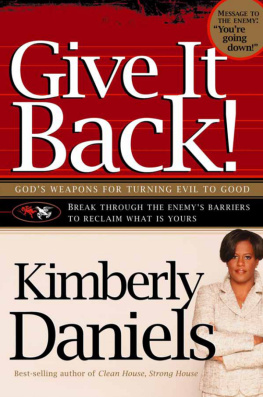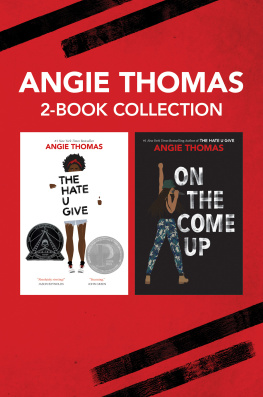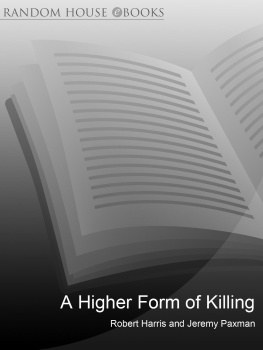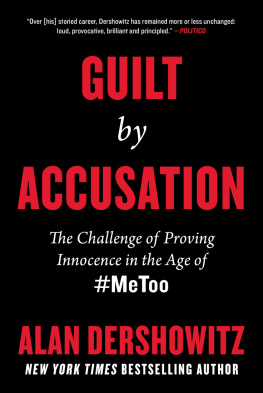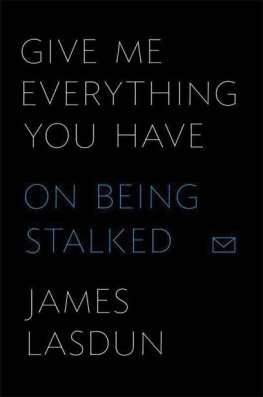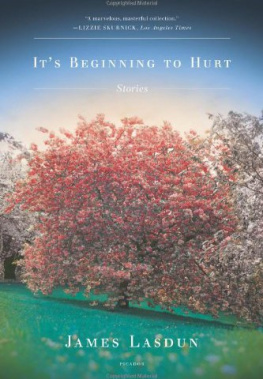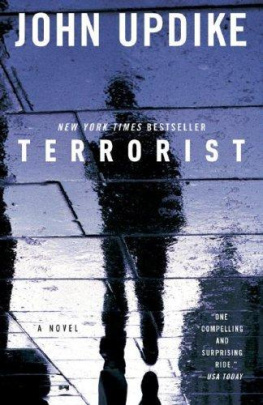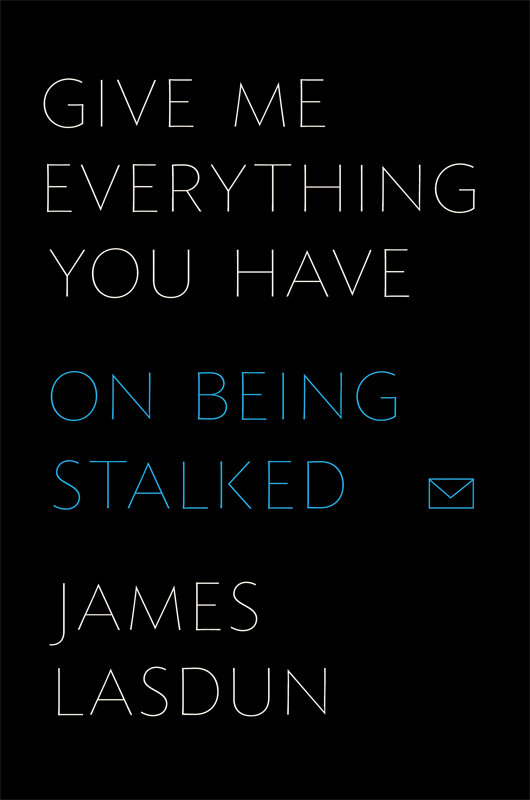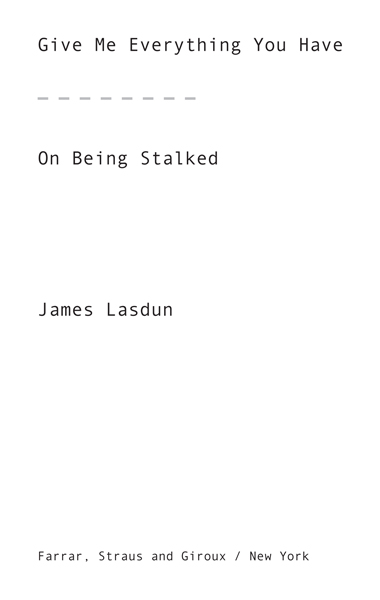
The author and publisher have provided this e-book to you for your personal use only. You may not make this e-book publicly available in any way. Copyright infringement is against the law. If you believe the copy of this e-book you are reading infringes on the authors copyright, please notify the publisher at: us.macmillanusa.com/piracy.
Contents
Part I
Nasreen
A young man on a journey comes across a corpse at the edge of a village. On inquiring why the corpse has not been buried, he is told that the dead man was in debt and that his creditors are refusing permission for the burial to take place until the debts have been paid. The young man, though not rich, immediately pays the debts and the burial goes forward.
That night the dead man comes to thank him. As a token of his gratitude he offers to accompany the young man on his travels and give him the benefit of the supernatural powers death has conferred on him. His only condition is that everything they gain on their adventures be divided equally between them. The young man agrees and the two set off together. All goes well for a year, with treasure after treasure falling into their hands and each of them taking an equal share.
Then one day they meet a woman, young and attractive. And now all of a sudden the men are confronted by an apparently insurmountable problem: how to divide the woman in two.
* * *
I read this folktale at university, where it made a strong impression on me. For many years I kept it in mind as a possible basis for a story, but I could never think of a way to use it and after a while it began to fade from me. I forgot which book Id read it in, I forgot the details of the adventures the two men have together before they meet the woman, and then I even forgot how they solved the problem of dividing the woman between them.
It was after the attacks on the World Trade Center that I came across the story again. I was trying to track down an aside on Islam in my old Penguin edition of Claude Lvi-Strausss Tristes Tropiques when I saw a passage I must have marked when I first read the book, thirty years ago. It was the story I had forgotten: a version of what is apparently a universal folktale motif, known as The Grateful Corpse. It didnt, as it turned out, contain any details of the two mens adventures before they meet the woman, so on that score my memory hadnt, after all, failed me. But it did resolve the question of how to divide the woman in two. It turns out she is bewitched: half woman, half demon. The dead man is interested only in her diabolic aspect and accepts this for his share, leaving a sane and companionable human being for the hero to marry.
* * *
In the fall of 2003 I taught a fiction workshop in the graduate writing program at a place Ill call Morgan College, in New York City. I live upstate, but my wife and I once lived in Greenwich Village, and wed held on to our rent-stabilized one-bedroom apartment, sharing it with a subtenant from Baltimore who used it only on weekends. The arrangement made it possible for me to take jobs like this in the city.
Among the students in my class was a woman Ill call Nasreen. She was in her thirties, quiet and reserved. Her work didnt come up for discussion until a few weeks into the semester and I didnt notice much about her before then, except that she sat at the back of the room rather than at the large table that I and most of the students sat aroundshy perhaps, or aloof, or a bit of both.
When her turn came, she handed in the opening chapter of a novel. It was set in Tehran in the seventies, during the last days of the Shah, and followed the lives of several members of a well-off family close to the Shahs inner circle. The ambitionto tell a story with history and politics in it as well as a large-scale family dramawas quickly apparent. Even more so was the quality of the writing. There are seldom more than a couple of students in any workshop who seem natural writers, and they arent hard to spot. It was evident to me, after a few paragraphs, that Nasreen was one of them. Her language was clear and vigorous, with a distinct fiery expressiveness in the more dramatic passages that made it a positive pleasure to read. I was extremely impressed.
Although I have taught on and off for twenty years, Ive never actually taken a creative-writing class myself, never had my material workshopped, as the term goes. When I try to imagine what it might be like, it seems to me that it must be a powerful and unsettling experience: a miniature version of the whole process of bringing out a book, with the editing, publishing, reviewing, and sales all jumbled up and compressed into a single tumultuous half hour. There you sit, listening to a roomful of people appraising something born in the innermost regions of your psyche and brought forth by efforts that probably stretched you to the limits of your abilities. These ten or fifteen pages are who you are as a writer, for nowfully exposedand the discussion is going to have a highly charged impact on you. Whatever the general verdict, the chances are youre going to come out feeling overwhelmed, whether by euphoria or by despair.
The classs response to Nasreens chapter was favorable, though perhaps not as warmly so as Id expected. I spoke last, as I usually do, and its possible that this slight lack of warmth made me more emphatically enthusiastic than I might have been otherwise. I dont remember what I said, but I do remember a shift in the atmosphere as I spoke: an air of faintly sardonic attentiveness settling on the students as they sat listening to my words of praise. I didnt interpret this as envy so much as the reluctant registering of the thought that the class, which had seemed to be of fairly uniform ability till now, was after all going to have a star, and that this was going to be Nasreen. Not necessarily a calamitous thought, but one that had to be adjusted to in some way.
Nasreen herself appeared pleased with the way things went, though contrary to my general hypothesis, she didnt seem overwhelmed, and she certainly didnt effuse in the way some students do after a positive response. I suspected she was confident in her abilities, no doubt glad to have had them recognized, but too much her own critic to be all that affected by other peoples views. And this too, this unflustered reaction of hers, seemed to me the mark of a real writer.
She turned in two more chapters that semester. Both reaffirmed my sense of her talent, though they also made it apparent that she had set herself a difficult challenge with her large cast of characters and her decision to accompany the action with dense historical analysis. The shifts in point of view were coming a little too thick and fast for comfort, and she hadnt found a way of incorporating the history into the story, so that lumps of it sat here and there like undigested portions of an encyclopedia.
As her thesis advisor, I met with her a few times during office hours toward the end of that term, and we talked about these and other matters. Though she still gave the impression of keeping a part of herself averted, she was a little more forthcoming in private than she was in the classroom. She revealed a self-deprecating sense of humor, laughing at her follyas she claimed to see itin embarking on this large enterprise. And in her quiet way she also seemed curious about me: asking how Id become a writer, what I was working on now, who my favorite novelists were.
As Id assumed, the family in her novel was based on her own family, who had fled Iran for the States at the time of the 1979 revolution, when she was a child. I remembered following those events myself: the Ayatollahs thunderous speeches from exile, the toppling of the Shah and his SAVAK security apparatus, the massive street demonstrations, the first intimations of what a radical Islamic regime was going to look like as the decrees went out concerning books, alcohol, dress. I was twenty, and this was the first revolution I had been old enough to pay serious attention to. London, where I was living, was full of Iranian exiles and refugees, among them some family friends who had taken my parents around the monuments of Isfahan and Persepolis a few years earlier. The trip had made a strong impression on my father, an architect, and, as always happened when something caught his imagination, a vibrant link had established itself between the subject and our entire household. Photos appeared on the shelves: stone lions, blue domes, latticed archways standing against desert skies. Books on Mughal architecture lay open on the side tables. A small fragment of a column that my father had pillaged and smuggled home was set up in a lit niche in our living room. Since then, even though I hadnt been on the trip, I have felt an interestor, more accurately, a kind of latent, hereditary entitlement to be interestedin Persian culture.


